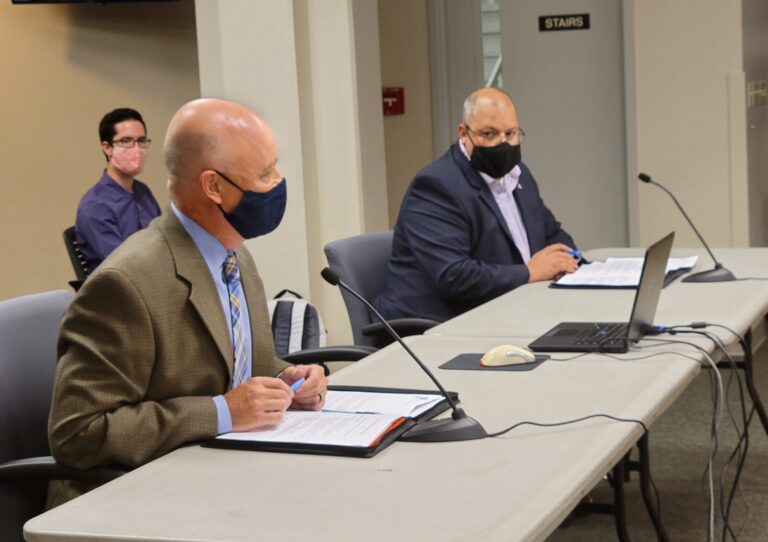URBANA – A revised use of force policy for Urbana Police covers 14 pages, instead of the eight pages covered by the old one. And it puts a new emphasis on de-escalating potentially violent situations.
Urbana City Council members heard a presentation on the new policy at their Monday night meeting on August 23.
Urbana Police Chief Bryant Seraphin says the new policy instructs officers to look for ways to defuse potentially violent situations whenever possible using de-escalation techniques. He told the Urbana City Council that the central section of the revised use of force policy, one title simply “Use of Force”, now focuses more on avoiding the need for force whatsoever.
“Now it’s entitled ‘De-escalation and Use of Force’,” said Seraphin, “with the idea being that is our first effort, whenever possible.”
The new policy also includes statements on community policing and the Urbana Police Department’s endorsement of the “Ten Shared Principles,” worked out between the Illinois Conference of the National Association for the Advancement of Colored People (NAACP) and the Illinois Association of Chiefs of Police. Another new session, “Termination of Use of Force”, spells out when police should stop using force against a subject, although Seraphin says the topic had been covered in other ways in the previous policy.
Citing advice of counsel, Seraphin would not say if his department’s handling of the controversial April 2020 arrest of Aleyah Lewis would have met the new use of force policy. A consulting firm reviewing the arrest had concluded that police followed the policy of the time, but suggested it needed an overhaul.
Council members had many questions for Seraphin. While some seemed satisfied with the answers, Alderwoman Grace Wilkin (D-Ward 6) was openly skeptical of the new policy and the police department’s intentions. She voiced her doubts on whether the public input gathered last fall on the new policy was sufficient. And she said she wished Seraphin was more open about what led to the new policy — instead of referring in a memo to the mayor and city council to “events (that) occurred between citizens and police involving uses of force throughout the United States” in 2020. Wilken said such statements implied that police misconduct only existed in other cities.
“It’s said that, you know, this is a national issue, it’s not an Urbana issue,” said Wilkin. “A lot of staff in the city have said this a lot of times. And I just wanted to say that I notice, and I don’t agree. And I think that it’s minimizing, it’s dismissive, it’s dangerous.”
This is the second attempt to revise the new Urbana police use of force policy.
An earlier version presented to the city council last January 11 was greeted with criticism, and assurances from Mayor Diane Marlin that the plan would be revised. The Champaign County chapters of the NAACP and the American Civil Liberties Union were particularly critical. The two groups questioned the policy’s definitions of “force” and “deadly force”, said it should expand the use of de-escalation techniques and that the definition of a police officer’s reasonable conduct should be “objectively reasonable”, not just what an officer believes is reasonable.
The local NAACP and ACLU were subsequently included in the revision process for the Use of Force policy. And enough changes were made that a news release on the new policy included their endorsements.
“This is a living progressive document and a very good first step,” said local NAACP President Minnie Pearson and local ALCU Communications Director Carol Spindel, according to the release.
Jim is a reporter for Illinois Public Media. Follow him on Twitter @WILLJimMeadows

